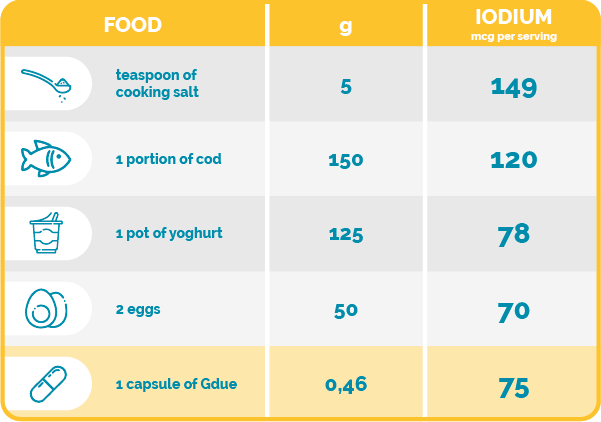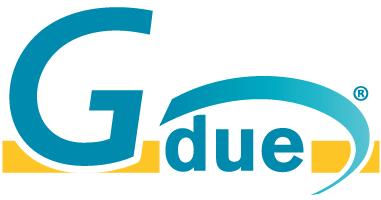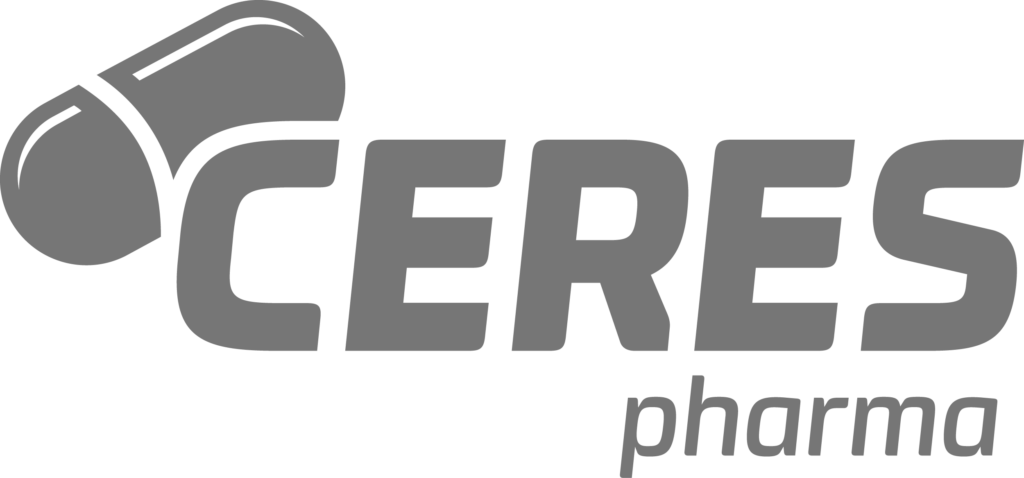What is it made of?

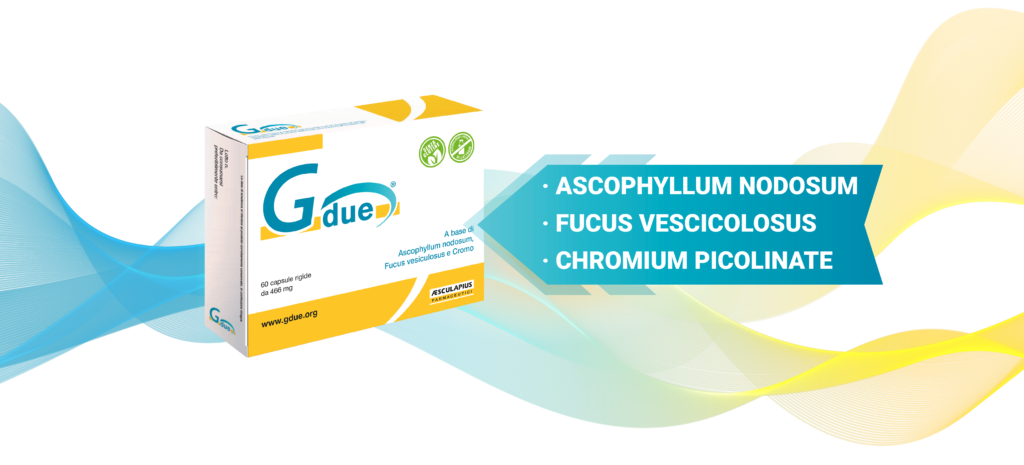
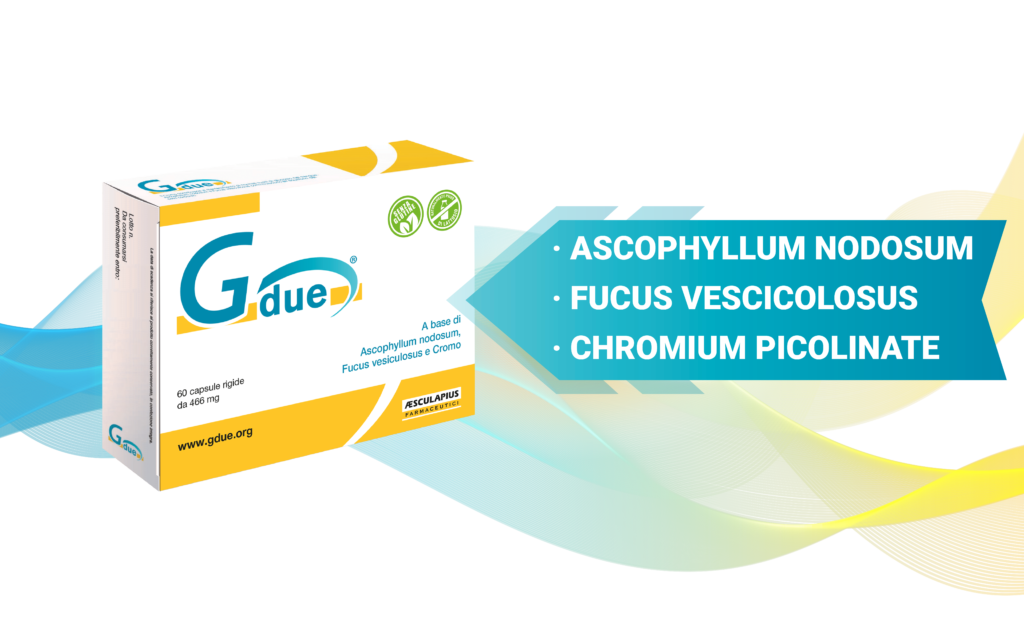
Gdue is a nutraceutical product containing a blend of standardised and titrated polyphenols from two cold sea brown algae (Ascophyllum Nodosum and Fucus Vesiculosus) and Chromium Picolinate.
The standardised and titrated blend extracted from Ascophyllum Nodosum and Fucus Vesiculosus is certified as:
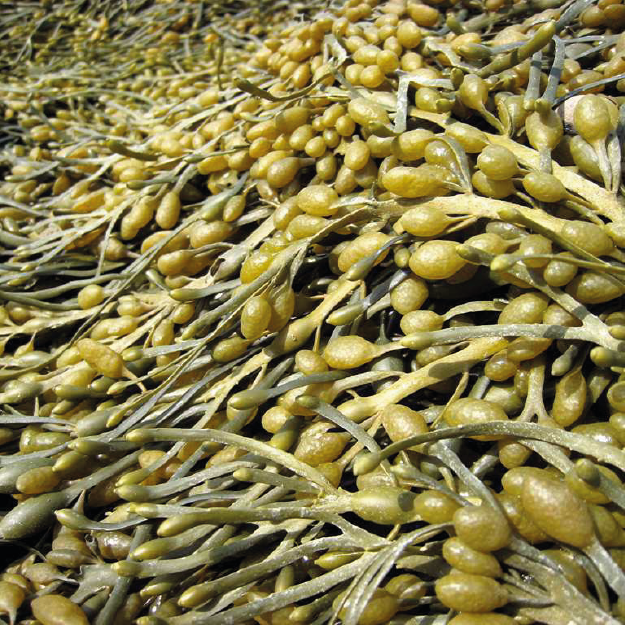
Ascophyllum Nodosum
It is one of the best known algae as its potential applications are the subject of numerous scientific studies and research. It grows on the rocky shores of the North Atlantic at a depth of about 30 metres and is harvested in the unpolluted coastal waters of the North Seas. It is washed and dried, maintaining all its distinctive characteristics.
Ascophyllum Nodosum contains polyphenols with large steric effects that act in the duodenum and are not absorbed systemically.
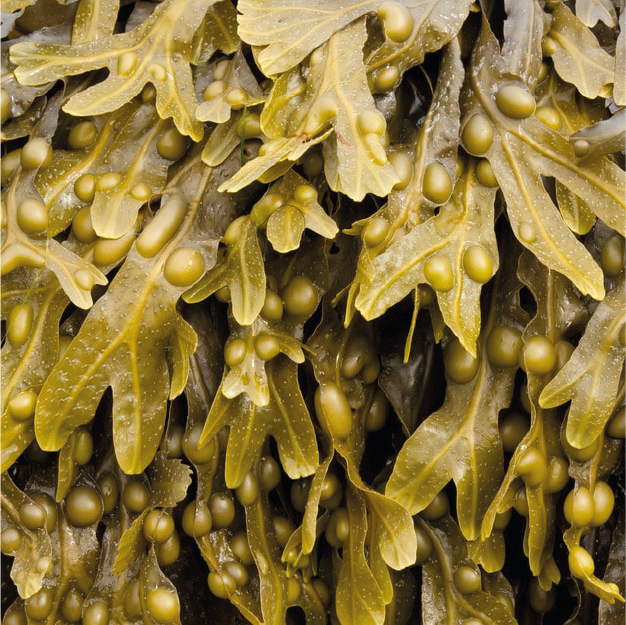
Fucus Vesicolosus
It is a brown alga particularly common in the cold seas near the British Isles and the Atlantic coasts of North America and Europe. In phytotherapy, Fucus Vesiculosus is considered one of the most selective natural remedies for reducing body weight and contributes to the physiological activity of the immune system.
Like all algal derivatives, it requires well-defined production processes to reduce the iodine content so as not to cause thyroid problems: in Gdue, iodine has been drastically reduced by the production process to just 75 micrograms per capsule.
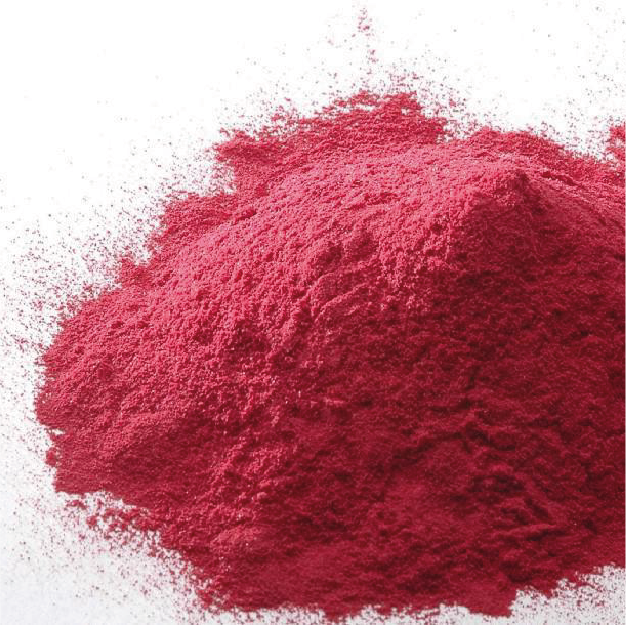
Chromium Picolinate
Chromium Picolinate contributes to regulating blood sugar levels and enhancing the action of insulin, resulting in a further favourable synergy of action.
It also controls blood fat levels and helps balance the lipid profile, enhances the anabolic action of insulin and significantly reduces hunger, making it a valuable ally for people on a diet.
Low Iodine content
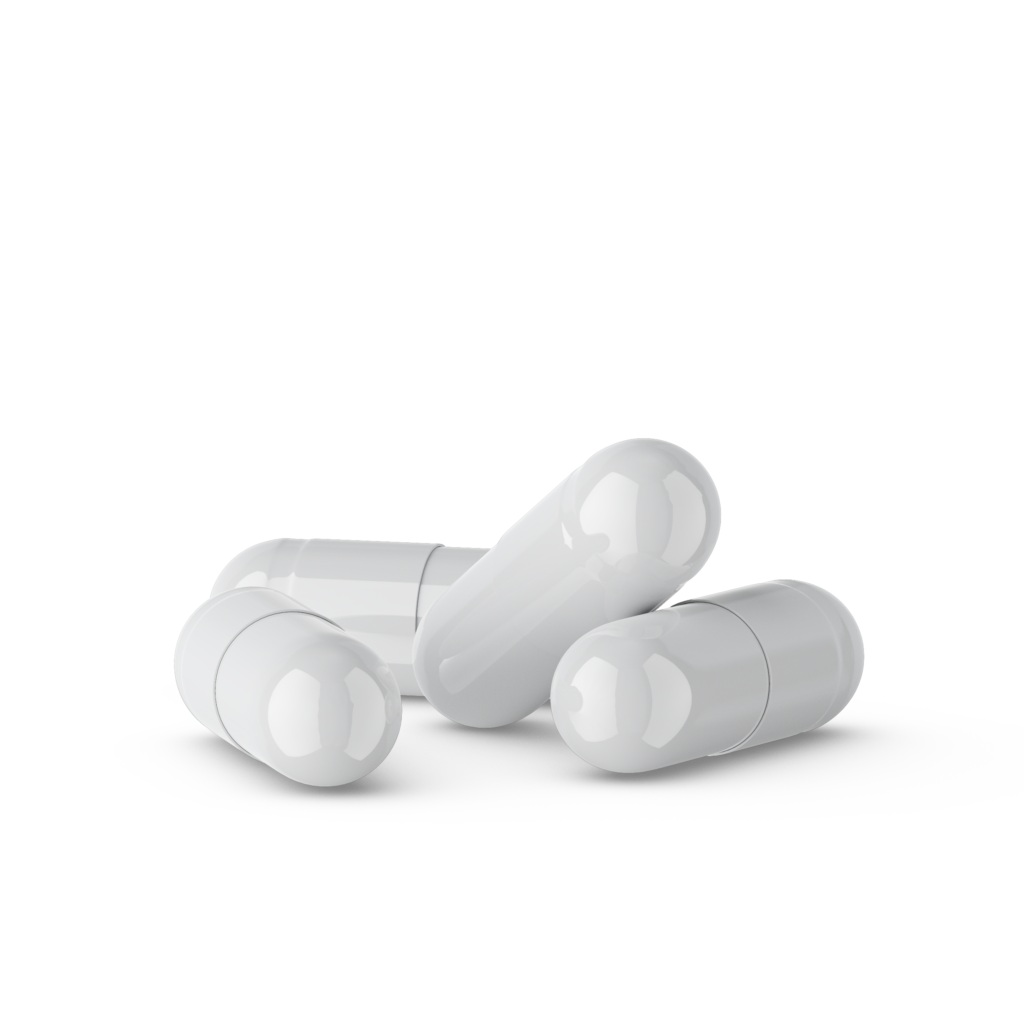
| Per 1 capsule | NRV%* 1 capsule | Per 3 capsules | NRV%* 3 capsules | |
|---|---|---|---|---|
| Ascophyllum Nodosum | 237,5 mg | – | 712,5 mg | – |
| Fucus Vesiculosus | 12,5 mg | – | 37,5 mg | – |
| Chromium | 7,5 mcg | 18,8 | 22,5 mcg | 56,3 |
* NRV: Nutrient reference values
One capsule contains up to a maximum of 75 mcg of iodine.
Low Iodine content
Iodine is a mineral salt that is widespread in nature but always present in very small percentages. In the form of iodide, it is found in small quantities in sea water and is quite abundant, as sodium iodate, in some saline deposits. It is also the essential constituent of the thyroid hormones, thyroxin and triiodothyronine.
Adequate dietary intake of this micro-nutrient is essential to ensure normal growth and development of human organisms.
Adequate intake of iodine is essential for the proper functioning of the thyroid gland (Table 1): iodine deficiency as well as excessive intake can result in adverse effects of varying severity, depending on the extent of the excess or any pre-existing deficiency status. To avoid such effects, the European Union’s Scientific Committee on Food in 2002 considered it appropriate to set maximum tolerable intakes based on a careful risk assessment (Table 2).(¹)
Table 1 ⋅
Recommended intake levels (mcg/day)
| Life stages | Iodine (mcg/day) |
|---|---|
| Infants (0 -59 months) | 90 |
| Children (6 -12 Years) | 120 |
| Adults | 150 |
| Pregnancy | 250 |
| Lactation | 250 |
*Adapted from: WHO, Unicef, ICCIDD (²)
(1) Not Ist Super Sanità 2008;21(7-8):8-12. Ruolo dell’Istituto Superiore di Sanità nel programma di iodoprofilassi in Italia, S. Giammarioli, E. Medda, P. Stacchini e A. Olivieri
(2) WHO, Unicef, ICCIDD. Assessment of iodine deficiency disorders and monitoring their elimination. Third edition, 2007. Disponibile all’indirizzo: http://whqlibdoc.who.int/publications/2007/9789241595827_eng.pdf
(3) Opinion of the Scientific Committee on Food (SCF) on the tolerable upper intake level of iodine, expressed on 26 September 2002. In: Tolerable Upper Intake Levels for Vitamins and Minerals by the Scientific Panel on Dietetic products, nutrition and allergies (NDA) and Scientific Committee on Food (SCF), European Food Safety Authority 2006. Disponibile all’indirizzo: http://www.efsa.europa.eu/EFSA/efsa_locale-8620753812_1178633962601.htm
Table 2 ⋅
Maximum tolerable intake levels (mcg/day)
| Age (years) | EFSA, Scientific Committee on Food |
|---|---|
| 1-3 | 200 |
| 4-6 | 250 |
| 7-10 | 300 |
| 11-14 | 450 |
| 15-17 | 500 |
| Adults | 600 |
| Pregnancy | 600 |
| Lactation | 600 |
*Adapted from: SCF (²)
(1) Not Ist Super Sanità 2008;21(7-8):8-12. Ruolo dell’Istituto Superiore di Sanità nel programma di iodoprofilassi in Italia, S. Giammarioli, E. Medda, P. Stacchini e A. Olivieri
(2) WHO, Unicef, ICCIDD. Assessment of iodine deficiency disorders and monitoring their elimination. Third edition, 2007. Disponibile all’indirizzo: http://whqlibdoc.who.int/publications/2007/9789241595827_eng.pdf
(3) Opinion of the Scientific Committee on Food (SCF) on the tolerable upper intake level of iodine, expressed on 26 September 2002. In: Tolerable Upper Intake Levels for Vitamins and Minerals by the Scientific Panel on Dietetic products, nutrition and allergies (NDA) and Scientific Committee on Food (SCF), European Food Safety Authority 2006. Disponibile all’indirizzo: http://www.efsa.europa.eu/EFSA/efsa_locale-8620753812_1178633962601.htm
The iodine naturally contained in the algae in Gdue has been drastically reduced by the manufacturing process to just 75 micrograms per capsule, an absolutely negligible amount in almost all subjects.
